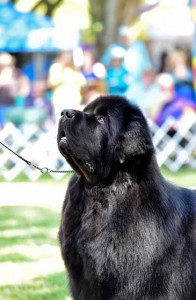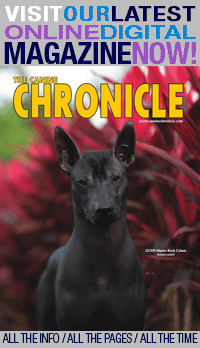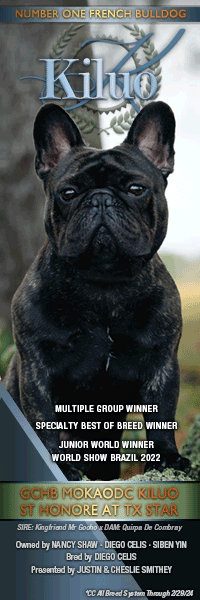Morris Animal Foundation Announces Call for Newfoundland Forelimb Anomaly Research Proposals
 Morris Animal Foundation is now accepting proposals for pilot studies of Newfoundland forelimb anomaly, an often debilitating condition in the breed. The request is part of the Foundation’s Donor-Inspired Study program, which allows individual donors and foundations to directly support research topics for which they have a passion and there is a pressing need. Grant applications are due by Wednesday, September 23, 2020, 4:59 p.m. EST.
Morris Animal Foundation is now accepting proposals for pilot studies of Newfoundland forelimb anomaly, an often debilitating condition in the breed. The request is part of the Foundation’s Donor-Inspired Study program, which allows individual donors and foundations to directly support research topics for which they have a passion and there is a pressing need. Grant applications are due by Wednesday, September 23, 2020, 4:59 p.m. EST.
Newfoundland Club of America Charitable Trust (NCA Charitable Trust) is funding the grant. NCA Charitable Trust has supported Morris Animal Foundation for nearly 20 years, making their first gift to support canine health studies in 2000. For over 20 years, the NCA Charitable Trust has been committed to funding research projects aimed at addressing critical health issues affecting the Newfoundland breed.
“This congenital deformity is not well understood yet and has been present in the Newfoundland breed for over 20 years,” said Dr. Clyde Dunphy, Chairman of the Newfoundland Club of America Charitable Trust Management Board. “We look forward to partnering with researchers to help solve this devastating puzzle so we can advise breeders on how to produce healthy Newfoundlands.”
Pilot study proposals should be aimed at generating preliminary data to more clearly define the condition of Newfoundland forelimb anomaly. Study methodology may include genetic testing, review of available literature and/or meaningful collation of relevant case materials. Desirable results are those indicating pathways for further research into disease prevention and/or treatment.
The NCA Charitable Trust can facilitate recruitment for researchers through their access to 3,000 Newfoundland owners and 26 regional clubs in the United States, as well as international outreach. Researchers also can source DNA samples from the Canine Health Information Center program administered by the Orthopedic Foundation for Animals.
This biorepository currently holds more than 2,000 samples from Newfoundland dogs, made up of about 1,200 blood-based samples and 800 swabs. It also includes 20 owner-reported cases of Newfoundland forelimb anomaly.
All investigators are eligible to apply, but studies must be limited to one year in duration and budgets cannot exceed $10,000. Competitive applicants will have a previous record of research and publication in relevant areas of canine and/or orthopedic research.
Newfoundland forelimb anomaly is a problem loosely defined as a growth abnormality that leads to deformity of the elbow joints. There is a possibility that more than one skeletal problem is involved inclusive of congenital radial head luxation. It is not known how many dogs are impacted, but the condition is of significant concern to breeders and owners.
Applications will be reviewed and rated, based on impact and scientific rigor, by a Morris Animal Foundation scientific advisory board. Interested researchers can lean more and apply for the award here.
Morris Animal Foundation is one of the largest nonprofit organizations worldwide that funds health studies benefiting cats, dogs, horses, llamas, alpacas and wildlife. The Foundation currently is funding 150 studies encompassing a broad spectrum of species and diseases.
Short URL: http://caninechronicle.com/?p=188123
Comments are closed












